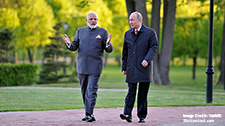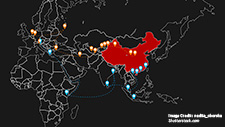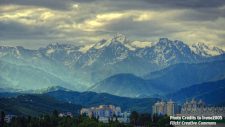The Role of Organized Crime and Drug Trafficking in Kyrgyzstan’s Ethnic Crisis
Erik Leijonmarck and Camilla Asyrankulova
On October 10, Kyrgyzstan held parliamentary elections. According to reports, the elections were surprisingly free and fair. Unfortunately, the problem of state criminalization remains. The new government will face a tough task when dealing with this problem. The conflict that erupted in June in southern Kyrgyzstan is generally seen as being driven by external factors, such as Islamic radicals exploiting socio-economic grievances and the extreme politicization of ethnicity and identity. Although these are important factors, the role of organized crime in the outbreak of ethnic conflict should not be overlooked. Behind the conflict lies the interplay between external and domestic factors as well as the link between regional/local organized crime and the corrupt family politics of former President Kurmanbek Bakiyev.
Related Publications
-
The Limitations of India and Russia’s Transactional Relationship
Since Russia’s unprovoked invasion of Ukraine in February 2022, it might seem as though ties between India and Russia have strengthened. While much of the West isolated Russia, India-Russia energy […]
-
ISDP Annual Report 2023
ISDP’s Annual Report for the year 2023. We look back on 2023, a year in which tensions and conflicts captured the strategic space in ISDP’s focus areas, making headlines around […]
-
Globalization and Technology See Italian Mafia Going Global
This issue brief delves into the changing landscape of Italian organized crime, focusing on the ‘Ndrangheta, a potent criminal group originating from Calabria. It explores how the ‘Ndrangheta has diversified […]
-
China in Eurasia: Revisiting BRI amidst the Russia-Ukraine Crisis
This paper discusses China’s trade and connectivity plans under the Belt and Road Initiative (BRI) in the Eurasian region and the impact of the Russian invasion of Ukraine on Chinese […]
-
Promise And Peril In The Caucasus
America’s national security bureaucracy separates the Caucasus and the Middle East into different bureaus, with Central Asia in yet another office. This is part of the reason the U.S. has […]




